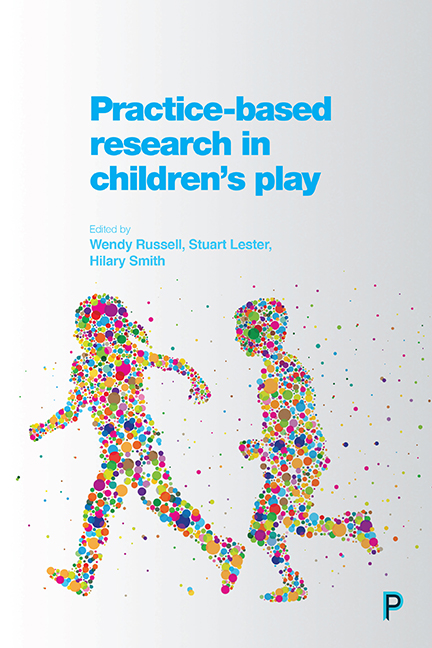Book contents
- Frontmatter
- Contents
- List of figures
- Notes on contributors
- Acknowledgements
- Foreword
- One Perspectives on play research: the practice-theory-research entanglement
- Part One Then and now: historical perspectives
- Part Two Here and there, this and that: spatial and creative perspectives
- Part Three Playfulness and wellbeing
- Closing thoughts
- Appendix: The Playwork Principles
- Index
Fourteen - What do we want research in children’s play to do?
Published online by Cambridge University Press: 05 April 2022
- Frontmatter
- Contents
- List of figures
- Notes on contributors
- Acknowledgements
- Foreword
- One Perspectives on play research: the practice-theory-research entanglement
- Part One Then and now: historical perspectives
- Part Two Here and there, this and that: spatial and creative perspectives
- Part Three Playfulness and wellbeing
- Closing thoughts
- Appendix: The Playwork Principles
- Index
Summary
Introduction
It is traditional for a concluding chapter to reflect on the content of the book and offer comment on meaning and future direction. What is offered here is an alternative optical metaphor, that of diffraction. Reflection implies seeking a singular, accurate mirror image of the studies presented here, reducing their multiplicity to more of the same. In this way it establishes a fixed direction for future (re)search in pursuit of a goal of enlightenment about children's play and adults’ role in supporting it. In physics, diffraction occurs when waves hit a barrier or a slit resulting in a different movement and patterning. It is a relational phenomenon (or perhaps a phenomenon of relating); a diffractive analysis in research and other forms of knowledge production requires paying attention to patterns of interference. As Haraway (1992, p 301) says: ‘Diffraction does not produce “the same” displaced, as reflection and refraction do. Diffraction is a mapping of interference…A diffraction pattern does not map where differences appear, but rather maps where the effects of difference appear.’
Extending this, Barad (2007, p 25) suggests diffraction is ‘an apt metaphor for describing the methodological approach…of reading insights through one another in attending to and responding to the details and specificities of relations of difference and how they matter.’
Multiple readings extend thinking rather than repeating sameness; it is an approach that is generative rather than reductive, leading to more questions but also discerning patterns and potentials.
In putting such an approach to work here, this final chapter draws on concepts from new materialist, posthuman, Deleuzian and postqualitative approaches to offer an account of the practice-based studies in this book and what these might mean for research in children’s play. These approaches have emerged from transdisciplinary work across fields as diverse as philosophy, life and physical sciences, and anthropology (for example, Barad, 2007; Braidotti, 2013). They disturb traditional research methodologies (for example, MacLure, 2010; 2013; Lather, 2013; 2015), and have been applied in a variety of contexts including early years education and childhood studies (for example, Lenz-Taguchi, 2014; Taylor and Blaise, 2014) and young teen sexualities (for example, Renold and Ringrose, 2011), but less so to middle childhood play scholarship, although examples are emerging, including Kane (2015), Lester (2013; 2016) and Russell (2016).
- Type
- Chapter
- Information
- Practice-Based Research in Children's Play , pp. 245 - 264Publisher: Bristol University PressPrint publication year: 2017

